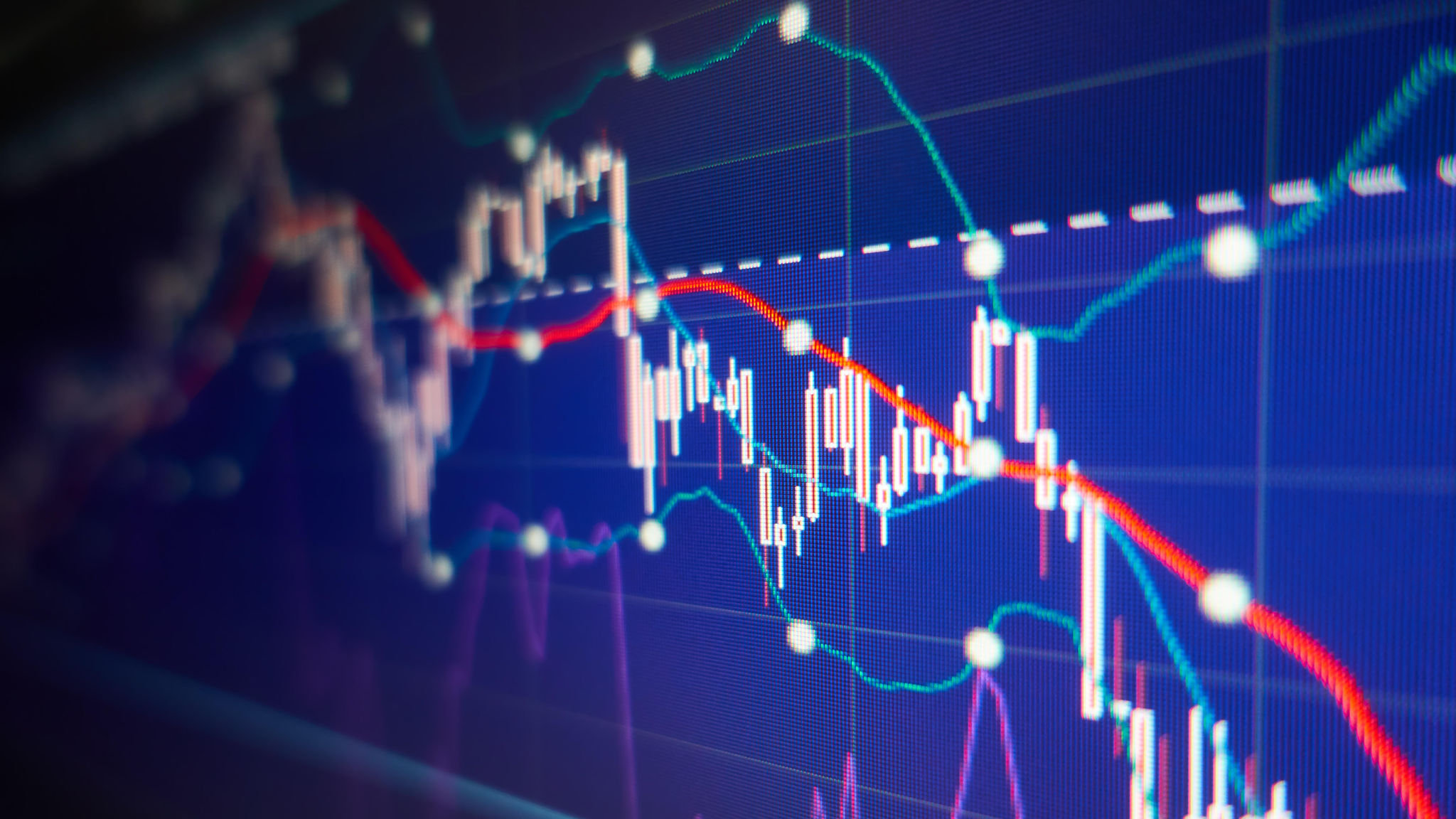Online stock trading has been gaining in popularity over the past decade all over the world, Nigerian stock exchange too has seen growing interest from retail investors in recent years. Numerous Nigerian young adults are turning to stock trading as a way of making a part-time income or to grow their savings. Institutional investors are also turning to electronic trading to make real time decisions. The primary attractions of online stock trading are the low barriers to entry, access to real time information & instant order execution.
These days, most stock exchanges and brokers including Nigerian Exchange and its brokers are connected through online trading systems allowing traders & investors to trade stocks online. This has been made possible with the advent of low cost trading apps; which took advantage of accessible internet and development of electronic trading technologies to offer their services to masses. Now, anyone can do online stock trading, as long as they are careful of managing risk.
Online stock trading refers to buying and selling stocks on the Nigerian or other stock exchange using electronic trading app or platform. Stocks, also known as shares, are a unit of ownership stake in a public company.
Online stock trading can be done through stock brokers who operate online.
In this guide, we will take you through everything you need to know, to start online stock trading in Nigeria.
What is Stock Market or Stock Exchange?
The stock market is a type of capital or financial market. The stock market refers to the public market on which shares or stocks are bought and sold. The stock markets allow public companies to raise money/capital from the public.
The stock market operates through stock exchanges. A stock exchange is a platform or medium through which stocks can be bought and sold. For example, the NGX is a stock exchange for trading Nigerian stocks.
Even though the main security traded on a stock exchange is stocks, there are several other types of securities are also traded. These securities include commodities, bonds, derivatives, and so on. Together these securities form the financial markets.
In earlier times, the stock market used to operate physically through paper-based transaction. Stocks were issued through paper-based stock certificates. However, these days, the stock market operates entirely electronically. This makes it far more convenient for ordinary traders to participate in the stock market and trade through stock exchanges.
Stock exchanges act as both primary and secondary markets for shares. It allows companies to issue their shares to the public making it a primary market. Further, it allows investors to buy and sell shares of companies to other investors making it a secondary market.
The primary market helps companies raise money from the public, while the secondary market helps investors to profit from each other.
The stock exchange earns a fee from companies and financial partners of the company to provide this service.
Important Stock Trading Terms
There are certain stock trading terms that every investor or trader needs to know.
Initial Public Offering
An initial public offering (IPO) refers to the first time in which a company offers its shares to the public. All companies, initially, are private companies. The public cannot own shares in such companies. The shares of these companies are privately distributed according to the law.
Hence, a company, once it reaches a certain size, can raise money from the public through an IPO.
Stock Market Indexes
A stock market index tracks the performance of a selected number of stocks based on a certain criteria. For example, the stock market indices in Nigeria include the NGX All-Share and the NGX Premium. These indices are an indicator of how well stocks under their umbrella are performing and gives indication and benchmark on underlying sectors, companies like top 30 companies, growth companies, banking sector etc. Investors use indexes to make investment decisions like buying or selling stocks or to do passive investing through ETFs.
ETFs
ETFs or exchange traded funds is a type of investment fund which is publicly traded on a stock exchange. Investors and traders can buy and sell units of an ETF through a public exchange, similar to stocks.
An ETF consists of a pool of funds from investors which are then invested in securities chosen by the investment manager of the ETF. ETFs normally track the performance of benchmark indices.
EPS
EPS, also known as earnings per share, is the amount of revenue a company is making per share that the company has issued. The EPS of a company is a good indicator of how well the company is performing.
If the EPS of a company grows from quarter to quarter, there is a high likelihood that the price of shares of the company may also rise.
Price to Earnings Ratio
Price to Earnings ratio or P/E is a ratio of the price of shares against the overall earnings of a share. This is an indicator of how undervalued or overvalued the shares of a company are when compared to the earnings of the company.
If the P/E ratio of a company is low, it means that the company is undervalued. If the P/E ratio of a company is high, it means that the company is overvalued.
Debt to Equity Ratio
The debt to equity ratio indicates the amount of debt a company has in comparison to the value of the company’s equity.
If the debt to equity ratio of a company is high, it may indicate that the company has too much debt. Whereas, if the debt to equity ratio of a company is low, it can mean that the company can afford to take on more debt if required.
Return on Equity Ratio
The return on equity ratio or ROE is the ratio of the profitability of a company when compared to the equity of the company. It provides a measurement of how efficiently a company is using the equity that it has raised from the public or privately.
Profit Margin
The profit margin of a company is the ratio of how much profit the company generates when compared to the company’s revenue.
When the profit margin of a company is high, it means that the company is highly profitability. When the profit margin of a company is low, it means that the company is not making much profit.
Market Order and Limit Order
A market order is a type of order on the stock market that commands the stock broker to sell or buy a stock as quickly as possible at the current market price.
In contrast, a limit order is a type of order in which the investor or trader sets the minimum or maximum price in which an equity needs to be sold or bought.
How To Trade Stocks In Nigeria?
There are two primary ways in which stocks can be bought or sold by Nigerian investors and traders.
Trading Nigerian Stocks or ETFs through the NGX
The NGX is the locally regulated stock exchange of Nigeria. The regulatory authority of Nigeria is the SEC, or Securities and Exchange Commission, which regulates the financial markets in Nigeria.
In order to trade Nigerian Stocks, ETFs, and other securities through Nigerian Exchange (NGX), a Nigerian trader or investor must have a stock trading account at a broker through which the trades can be made and a CSCS account which keeps ownership record of his/her securities.
First, you need to open an stock trading account at a NGX licensed broker only then you can open a CSCS account.
Investors can also invest in licensed Mutual funds investing in equities. SEC licenses fund managers in Nigeria.
The main advantage of trading Nigerian securities through the NGX is that it is a locally regulated body. This means that there is no scope for unauthorized or unscrupulous behavior by market participants. Hence, trading through the local exchange is considered to be a safer option.
In case of an issue, a trader or investor can approach SEC or local authorities in order to resolve the dispute.
Trading Global Stocks and Indices through Global Online Brokers
To trade global stocks, Nigerian traders and investors can open an account with a global online brokers or trading apps like Hotforex or FXTM. These brokers offer a wide range of international securities for investors to trade. These securities include CFDs on international stocks, indices, ETFs, currency pairs, bonds and so on.
Before registering with a global broker, a trader needs to check the licenses held by such brokers. The best and safest brokers usually have licenses from top tier financial authorities such as the FCA of the UK or the ASIC of Australia.
The primary advantage of trading through a global online broker is that a trader can gain exposure in international securities. For example, a trader from Nigeria can speculate on Apple shares, which would not be otherwise possible.
However, there is a downside to trading with global online brokers. As most global online brokers are usually not regulated by Nigerian authorities or with any reputed regulators like FCA or ASIC and do not have a local presence in Nigeria. Hence, a trader can have no legal help in case an issue arises. So, these brokers are considered much less safer when compared to local bodies.
But, there are few globally regulated online CFD brokers that have local offices in Nigeria & are licensed with European regulators like FCA & CySEC. These brokers offer Online Forex Trading in Nigeria & Stock, Indices as CFD instruments. However, these brokers only offer international stocks & indices as CFDs; these instruments are only suited for experienced investors and day traders/speculators.
Common Stock Trading Approaches and Strategies
There are certain common approaches that a trader needs to know about before they enter the stock market. It is important for a trader or investor to have a trading or investing strategy along with risk mitigation techniques.
There are two primary types of strategies- passive strategies and active strategies.
Passive Strategies
Passive strategies refer to strategies which do not require daily activity on the part of the investor. Such strategies are suited to long-term or medium-term investors rather than intraday traders.
- Value Investing
Value investing refers to identifying and investing in companies whose shares are undervalued. The stocks of companies do not always trade at fair valuations. The stock price of a company depends on the demand and supply of its shares.
Hence, the shares of a company which has high demand may be overvalued. In contrast, the shares of a company that has little demand have a higher chance of being undervalued.
- Growth Investing
Growth investing refers to identifying and investing in companies that are on a fast-paced growth trajectory. Such companies are growing very quickly and hence their share prices also rise fast.
Active Strategies
Active strategies are more suitable for intraday traders who actively buy and sell shares every day.
- Day Trading
Day trading refers to the act of opening and closing a position in a share within the space of a day. Day traders do not hold any shares or stocks overnight. These traders also take advantage of leverage offered by brokers to take advantage of the margin.
- Scalping
Scalping uses technical indicators in order to take advantage of small movements in share or stock prices. Scalping is an advanced way of trading in securities that requires some technical knowledge.
What Are the Risks of Stock Trading?
Stock trading involves a lot of capital risk. It is possible for investors to lose large amounts of money because of investing. The movements of share prices are not predictable especially in short term, hence, the chances of losses are high. This is why an investor should never invest an amount of money that they are not prepared to lose.
Investors need to be careful when picking a stock broker and should check how trustworthy the broker and how low or high their fees are.
Beginners must learn basics and understand the risks and should avoid active strategies in favor of passive strategies like value or growth investing, since these are less risky.
An important part of being an investor is to keep updated with financial news so that they can make informed decisions. Investors should not listen to market chatter or unsolicited advice.
An investor should also follow proper money management like budget allocation, risk management techniques such as using stop loss orders and limit orders. They should also learn to measure risk-vs-reward.
Investors should also opt for virtual demo accounts in order to learn and practice trading without risking real money. Beginners must start by investing in index funds (ETFs) or mutual funds to minimize risk.

 Join Daily Trust WhatsApp Community For Quick Access To News and Happenings Around You.
Join Daily Trust WhatsApp Community For Quick Access To News and Happenings Around You.



